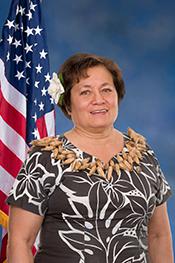0
0
0
To waive certain provisions in the case of an emergency declaration under the Robert T. Stafford Disaster Relief and Emergency Assistance Act.
2/6/2025, 3:03 AM
Summary of Bill HR 315
Bill 119 HR 315, also known as the "Emergency Declaration Waiver Act," aims to provide flexibility in the implementation of the Robert T. Stafford Disaster Relief and Emergency Assistance Act during times of emergency declarations. The bill seeks to waive certain provisions of the Stafford Act in order to expedite the delivery of critical assistance to communities in need.
Specifically, the bill allows the President to waive certain requirements related to the cost-sharing provisions for federal assistance, as well as the limitations on the amount of assistance that can be provided to a state or local government. This waiver authority would only be granted in cases where the President has declared a state of emergency under the Stafford Act.
The purpose of this legislation is to streamline the process of providing aid to communities affected by disasters, allowing for a more efficient and effective response to emergencies. By waiving certain provisions of the Stafford Act, the bill aims to ensure that resources can be quickly mobilized to assist those in need during times of crisis. Overall, the Emergency Declaration Waiver Act seeks to improve the federal government's ability to respond to emergencies and provide timely assistance to communities in distress. It is designed to enhance the effectiveness of disaster relief efforts and ensure that resources are deployed swiftly and efficiently to those who need them most.
Specifically, the bill allows the President to waive certain requirements related to the cost-sharing provisions for federal assistance, as well as the limitations on the amount of assistance that can be provided to a state or local government. This waiver authority would only be granted in cases where the President has declared a state of emergency under the Stafford Act.
The purpose of this legislation is to streamline the process of providing aid to communities affected by disasters, allowing for a more efficient and effective response to emergencies. By waiving certain provisions of the Stafford Act, the bill aims to ensure that resources can be quickly mobilized to assist those in need during times of crisis. Overall, the Emergency Declaration Waiver Act seeks to improve the federal government's ability to respond to emergencies and provide timely assistance to communities in distress. It is designed to enhance the effectiveness of disaster relief efforts and ensure that resources are deployed swiftly and efficiently to those who need them most.
Congressional Summary of HR 315
This bill prohibits the Federal Emergency Management Agency from requiring the application of the Buy American requirements (requirements for the use of goods mined, produced, or manufactured in the United States) with respect to purchases made or contracts issued by Puerto Rico, the District of Columbia, American Samoa, or the U.S. Virgin Islands in the case of an emergency declaration.
Read the Full Bill
Current Status of Bill HR 315
Bill HR 315 is currently in the status of Bill Introduced since January 9, 2025. Bill HR 315 was introduced during Congress 119 and was introduced to the House on January 9, 2025. Bill HR 315's most recent activity was Referred to the House Committee on Transportation and Infrastructure. as of January 9, 2025
Bipartisan Support of Bill HR 315
Total Number of Sponsors
2Democrat Sponsors
0Republican Sponsors
2Unaffiliated Sponsors
0Total Number of Cosponsors
0Democrat Cosponsors
0Republican Cosponsors
0Unaffiliated Cosponsors
0Policy Area and Potential Impact of Bill HR 315
Primary Policy Focus
Alternate Title(s) of Bill HR 315
To waive certain provisions in the case of an emergency declaration under the Robert T. Stafford Disaster Relief and Emergency Assistance Act.
To waive certain provisions in the case of an emergency declaration under the Robert T. Stafford Disaster Relief and Emergency Assistance Act.
Comments
Sponsors and Cosponsors of HR 315
Latest Bills
Providing amounts for the expenses of the Committee on Ethics in the One Hundred Nineteenth Congress.
Bill HRES 131December 12, 2025
Providing for congressional disapproval under chapter 8 of title 5, United States Code, of the rule submitted by the Bureau of Land Management relating to "Central Yukon Record of Decision and Approved Resource Management Plan".
Bill HJRES 106December 12, 2025
Expressing the sense of the House of Representatives in condemning the Government of the People's Republic of China for its harassment and efforts to intimidate American citizens and other individuals on United States soil with the goal of suppressing speech and narratives the People's Republic of China finds unwelcome.
Bill HRES 130December 12, 2025
Providing for congressional disapproval under chapter 8 of title 5, United States Code, of the rule submitted by the Bureau of Land Management relating to "North Dakota Field Office Record of Decision and Approved Resource Management Plan".
Bill HJRES 105December 12, 2025
Providing for congressional disapproval under chapter 8 of title 5, United States Code, of the rule submitted by the Bureau of Land Management relating to "Miles City Field Office Record of Decision and Approved Resource Management Plan Amendment".
Bill HJRES 104December 12, 2025
Providing amounts for the expenses of the Select Committee on the Strategic Competition Between the United States and the Chinese Communist Party in the One Hundred Nineteenth Congress.
Bill HRES 104December 12, 2025
Critical Access for Veterans Care Act
Bill S 1868December 12, 2025
OATH Act of 2025
Bill S 1665December 12, 2025
A bill to extend the authority for modifications to the Second Division Memorial in the District of Columbia.
Bill S 1353December 12, 2025
Saving Our Veterans Lives Act of 2025
Bill S 926December 12, 2025
